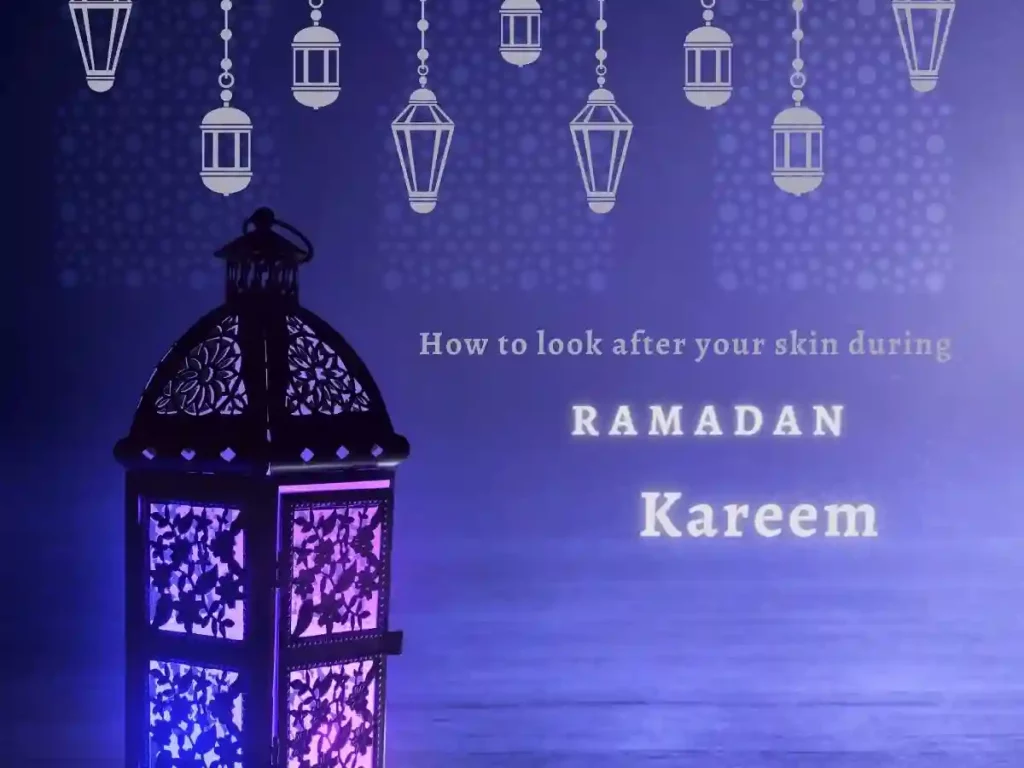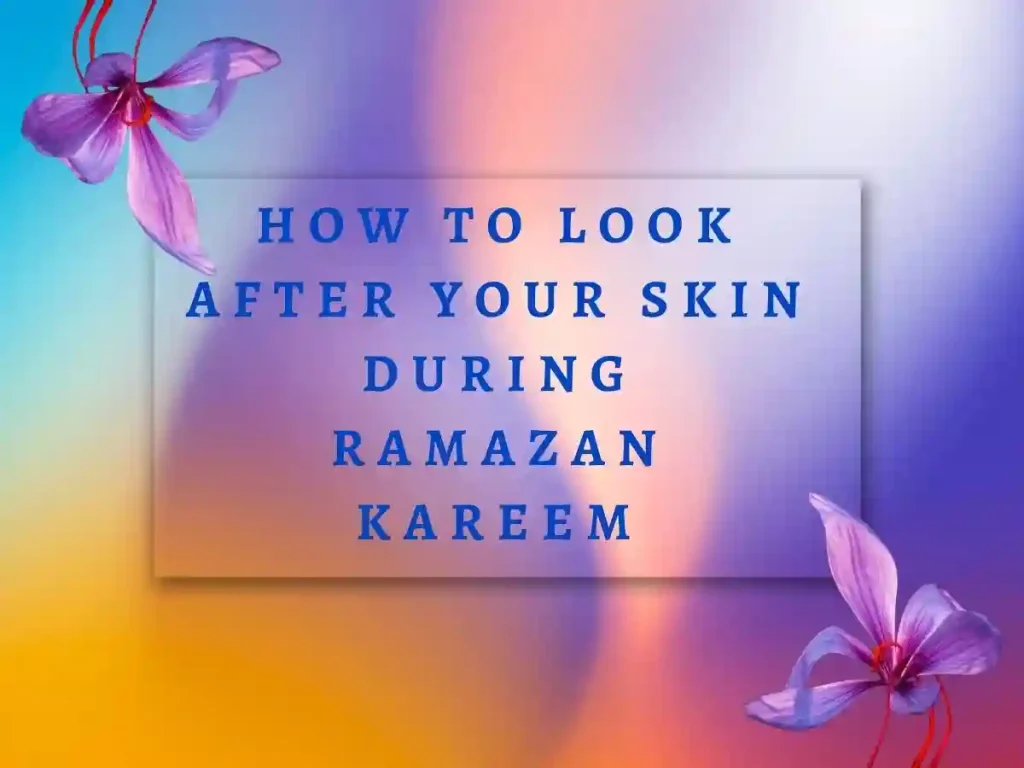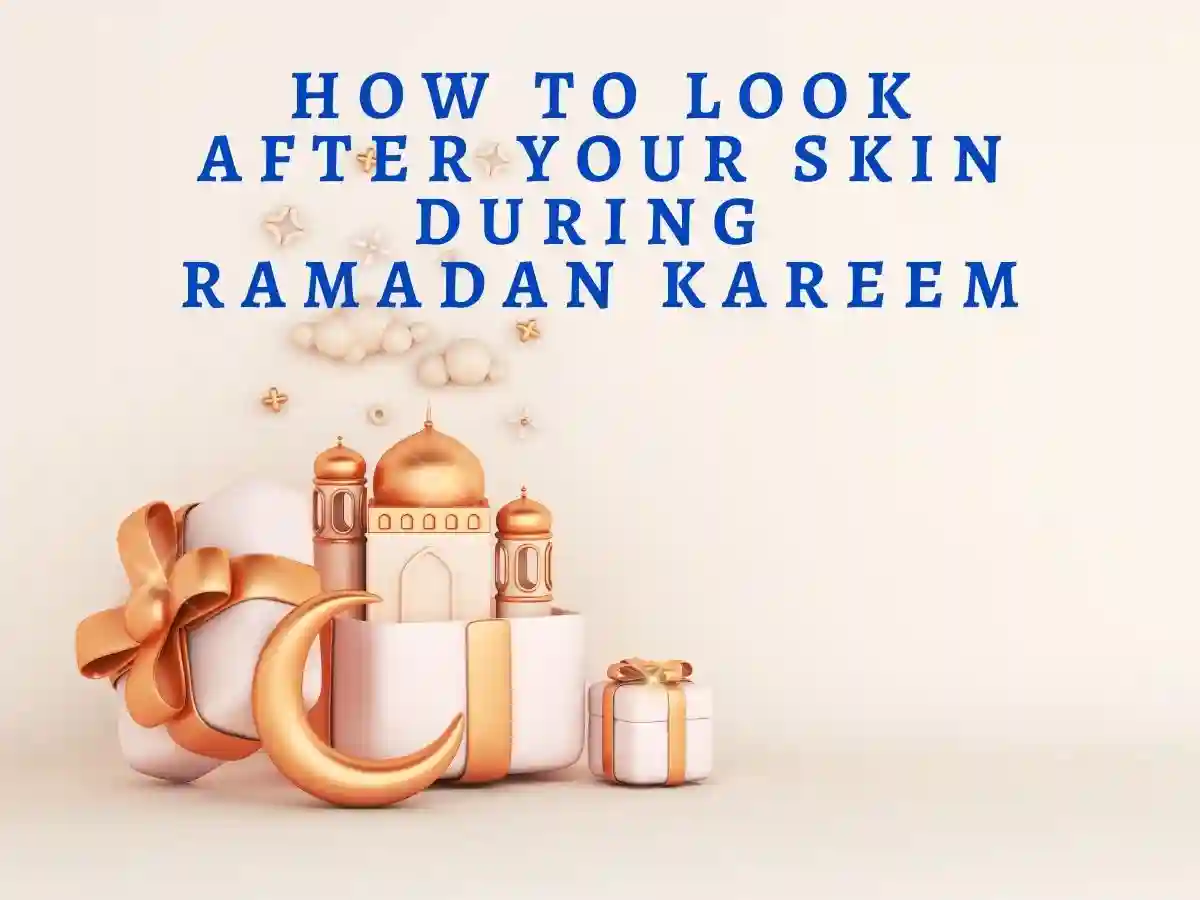Ramadan, the month of spiritual and physical repentance for Muslims, is marked by a fast from sunrise to sunset.
It represents dedication, reflection, and discipline.
Fasting is a way to reflect on the suffering and anguish of millions of people living in poverty and famine around the globe.
A poor diet, a lack of water, and disturbed sleep can hurt your skin and body. The Derm Doctor (Dr Muneeb Shah) is a TikTok dermatologist who encourages people to care better for their skin during the holy month.
He tells BBC Asian Network that he didn’t know many South Asians, Muslims, or fasting friends growing up.
Also Read: Ramadan Information & Ramadan For Kids

One of the best things about social media is that you can connect with people worldwide.
Dr Shah has over 17 million followers on TikTok since posting his first video in 2020. He is now the most popular dermatologist.
He wants to dispel the myths about skincare and show the positive effects this month can bring for some people.
He says many skin conditions, such as psoriasis, acne, and others, are inflammatory. Some studies have shown that people who fast during Ramadan experience decreased psoriasis.
What are Dr Shah’s best tips for caring for your skin in Ramadan?
Also Read: The Holy Month of Ramadan Blessings
Hydrate, hydrate, hydrate
Dr Shah, who is fasting, advises that people use more hydrating skin care products during fasting.
He says that washing their face after praying five times can be very drying for some people.
It is important to moisturize after washing your face. Otherwise, it could irritate the barrier of the skin.
Suggested Read: Muslim Islam, Eating & Drinking
Keep a healthy diet
Dr. Shah says, “Some people will say their skin gets worse because they change their diet significantly during Ramadan, which means what you do when you break your fast.”
Skin can be affected by eating a lot at sunset or before sunrise and avoiding nutritious food groups because of time constraints.
Dr Shah believes moderation is the key to a healthy break from fasting.
“Fried food has no relation to acne, but anything eaten in excess can cause skin problems.
“I usually eat a lot of fried food when I break my fast. I don’t believe it affects my face, but others may notice it affects their skin.
Also Read: Printable Ramadan Mubarak Worksheet Download
Could you keep it simple?
Ramadan is a time when eating and sleeping patterns change dramatically. Many people may need to update or modify their skincare routine.
But Dr Shah says that you can still use everyday products during fasting.
He says it’s a misconception that you cannot use your usual skincare products while fasting.
You can use your traditional moisturizers or sun creams while you are fasting.
For the day, his simple routine includes cleansing and moisturizing. For the night, he suggests cleansing, moisturizing, and applying retinol.
Farah Ferrero, a content creator like Dr Shah, uses her social media platform to educate her audience on Ramadan skincare.
The 29-year-old from Leicester says there needs to be more misinformation on the internet about which skin care products to use and what not to do during the holy month.
She says that some people do not drink alcohol during Ramadan.
“Toners are alcohol-based, but I am a Muslim and don’t drink it. It doesn’t intoxicate me, so it is fine to apply to my skin.”
- The coastal communities celebrate Ramadan
- London’s West End lights up for Ramadan’s first
- Doucoure as a Muslim footballer
Our Latest Ramazan Articles:
- Ramazan Apps You Must Have
- How To Enjoy Ramadan With Menstruation?
- Ramazan Increases Women’s Responsibility
- 5 Beautiful Ramadan Duas Every Muslim Should Know
- Ramadan Supplications: Qualities Of A True Servant
- Ramadan Mubarak: Hear Greetings in Different Languages
- Ramazan Healthy Recipes To Open And Close Your Fast With
- 7 Heart Warming Duas To Celebrate The End of Ramadan 2024
- What is The Celebrate Ramadan? Here are 5 Unique Traditions
- Ramadan Recipes For Kids: A Collection Of Fun Kid-Friendly Recipes
- Ramazan Begins With Varied Fasting Hours Across The World Wide
- Select 7 Heart Warming Duas To Celebrate The End of Ramadan 2024
- Fasting Begins on Thursday in Saudi Arabia Despite There Being No Ramazan Moon

Farah also recommends double cleansing during Ramadan.
Double cleansing removes makeup using an oil-based or micellar cleanser and then cleans deeper into the pores with a second cleanser.
She shares her skincare experience and believes transparency is important during Ramadan.
She says, “Sometimes I use a face wipe when I feel lazy. I get some negative comments on social media because it is not good for the skin.”
I just came home after a long workday, and I cooked. “I just want to do what’s easiest, which is okay.”








